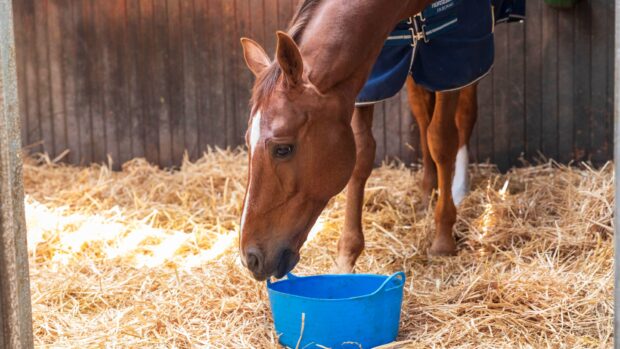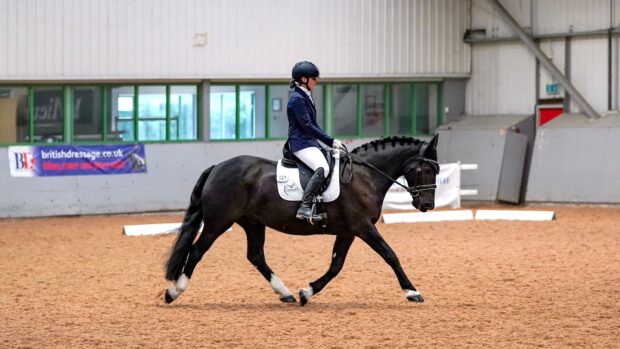Spillers' equine nutritionist Clare Barfoot provides one H&H forum user with some helpful advice on how to feed a cob through the winter
Q: How to feed a cob: “I’ve just purchased a 15hh cob that has been solely out at grass 24/7. She will now be kept in at night. As well as being fed ad-lib hay, I’d like to give her an evening and morning feed. While she has done well being out 24/7, she does have quite a dull coat and patchy mane. She’s in light work, ridden for an hour daily. I wondered what feeding advice you could give me for a cob that isn’t a bad doer, but needs a better coat and hair please?”
A: This is a common conundrum when it comes to feeding cobs and native types who seem to live off fresh air! Your mare will probably maintain her weight well over the winter on grass and ad lib hay alone.
It is, however, advisable to condition score her regularly so you can pick up any minor fluctuations in her condition and adjust her diet accordingly. Obviously if she puts on too much weight you will need to restrict her forage overnight, but be careful not to leave her for long periods of time without forage to munch on. Chewing creates saliva that helps to neutralise stomach acid that can build up and damage the delicate stomach lining contributing to ulcer development, which is why it is important to maximise chewing time.
Continued below…
Related articles:
- H&H forum: find out what H&H readers suggested
- How to feed a cob in light work with little grass
- Read more expert feeding advice
The other consideration when feeding your mare is ensuring she has a balanced diet. A balanced diet is one that contains a balance of nutrients to meet an individual’s daily nutritional requirements, which is really important in supporting optimum health and well-being.
A diet deficient in key nutrients can result in subtle clues such as a dull coat, poor hoof quality or lack of topline which are sometimes seen in overweight horses and ponies that aren’t fed any additional feed.
A balanced diet is just as important for an overweight horse as one that is underweight; remember it’s calories that should be restricted, not nutrients.
Continued below…
The ideal way to provide a balanced diet without unwanted calories is by feeding a balancer such as SPILLERS Lite and Lean Balancer that includes high levels of lysine, an important amino acid to help support muscle tone and topline alongside a comprehensive range of daily nutrients.
If you want to feed your mare twice a day, you can split the recommended amount over two feeds mixed into a little low calorie chopped fibre such as SPILLERS Daily Fibre or if you prefer, a soakable fibre such as SPILLERS SPEEDY-MASH Fibre. These feeds will ‘bulk’ out your mare’s bucket without providing too many calories. I’m sure by the end of the winter she will be lean, gleaming and ready for the show ring!
For more advice on electrolyte supplementation call the SPILLERS Care-Line on 01908 22 66 26.




